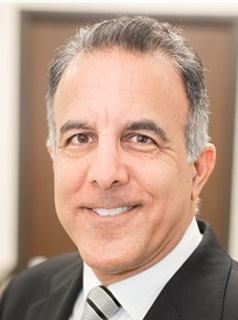Your Brain on Love: Chocolate as an Aphrodisiac
With Valentine's Day fast approaching, it only makes sense for couples to be questioning love and how it works. While researchers have been able to pinpoint many natural chemicals that are associated with the sensations we call love, it’s still a mystery in many ways. Along with the research on chemical reactions in the brain, scientists have also studied the response to physical and sensual stimulants on feelings of “love”. These stimuli are referred to as aphrodisiacs, and while the jury is still out on whether there is truth to these romance inducers, there have certainly been some positive results over the years.
Igniting the Fire
Whether you’re in a brand-new couple, or you and your partner have been together for years, there’s no harm in getting a helping hand. Aphrodisiacs can work in two different ways to stimulate desire and sexual arousal. Some work by triggering natural chemicals in the brain, others work to stimulate specific body parts. Research has shown that when using food as an aphrodisiac, you can stimulate the production of hormones, which cause feelings of arousal. Strawberries, oysters, cinnamon, and of course, chocolate, are all considered to be natural aphrodisiacs.
How Chocolate Works for Love
Chocolate has been used as an aphrodisiac and sexual arousal tool since the early Aztec period. At this time, there was no such thing as the refined chocolate we have today. Instead, men and women would consume cocoa nibs from the cocoa plant itself to produce these positive symptoms. Rather than give a box of chocolate to a loved one, they would ground down the cocoa beans, and produce a mixture that was sometimes consumed with chili peppers. Now, modern science has deduced that natural chemicals hidden in chocolate, tryptophan and phenylethylamine. The first triggers serotonin release in the brain, which leads to natural feelings of sexual arousal. The second is a stimulant, which creates the feeling of boosted energy, and lifted spirits, much the way that love feels.
Using Chocolate to Boost Your Libido
Ingesting chocolate regularly won’t guarantee you anything other than a few extra pounds come Valentine's Day. By making it a special treat to share during a romantic evening, you provide that natural chemical release with the perfect outlet for a night to remember. Aphrodisiacs have been shown to work best in moderation, adding to their success rate by their ability to surprise the mind and body with the chemical release they provide. Be sure to speak to your doctor before making any major dietary changes, and follow nutritional guidelines set down by the medical professionals in your life, especially if you deal with any illnesses that could be affected by an additional sugar intake. While there aren’t any completely conclusive results on whether aphrodisiacs work, or how chocolate works specifically, there has been definitive proof in the effects of serotonin, dopamine, and phenylethylamine on the brain and body. In other words, have fun this Valentine's Day, and feel free to experiment with some natural aphrodisiacs of your own. For some men, aphrodisiacs are required due to a low sex drive, or erectile dysfunction. This is nothing to be ashamed of, and in fact, it affects many men around the globe. For fast, safe, and secure access to a trained medical professional, and a hassle-free prescription,
Happy Valentine's Day from Quick RX Refill!

WARNING: Limitations of Online Doctor/Medical Consultations and Online Prescriptions, QuickRxRefills Cannot and Will NOT Prescribe, Dispense, or Resell any and all medications Narcotics/Controlled Substances (this policy is fully enforced by the Drug Enforcement Administration (DEA)) for Anti-depressants, Pain, Anxiety, Weightloss, Sleep, ADHD/ADD, Anabolic Steroids, Testosterone Replacement Therapy and any and all Medications that contain GabaPentin or Pseudroephedrine including non-controlled substances or any medications that are considered controversial, Off Labeled (Growth Hormone aka HGH) or recalled in nature such (i.e. Retin-A, Accutane). Furthermore, QuickRxRefills is not a substitute for an office based physician in your location nor is it a substitute for Emergency Medical Care or 911. If you do experience a "true" medical emergency your are encouraged to pick up the phone and dial 911 as soon as possible.






